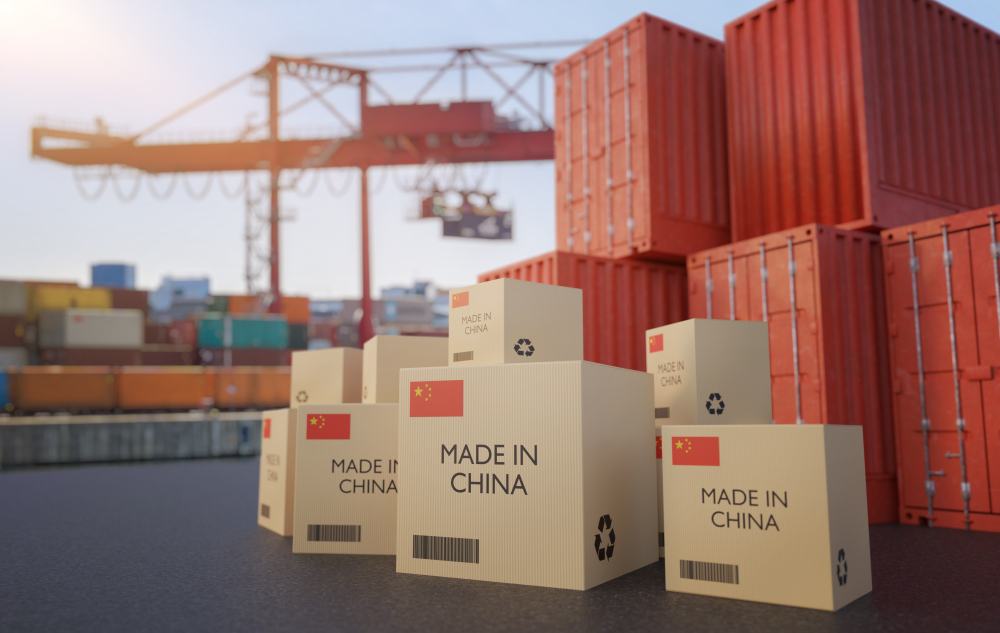INAUGURAL UYGHUR FORCED LABOR PREVENTION ACT STRATEGY REPORT
The Forced Labor Enforcement Task Force (FLETF) issued its initial update on the Uyghur Forced Labor Prevention Act (UFLPA) strategy, emphasizing the need for increased funding and resources for effective enforcement. The update, released on August 1 and mandated annually, highlights steps taken by the Customs and Border Protection (CBP) to strengthen enforcement capabilities and offer enhanced compliance guidance to importers.
Approximately one year after the UFLPA’s rebuttable presumption took effect, which restricts imports linked to Xinjiang or entities on the UFLPA Entity List unless labor conditions are proven satisfactory, CBP has halted 4,651 shipments valued at $1.64 billion for further review.
Forced Labor in Xinjiang and the UFLPA
The United States condemns the Peoples Republic of China’s (PRC) violations and abuses of human rights in Xinjiang. The PRC government continues to engage in genocide and crimes against humanity against predominantly Muslim Uyghurs and members of other ethnic and religious minority groups in Xinjiang.
The crimes against humanity include imprisonment, torture, forced sterilization, and persecution, including through forced labor and the imposition of draconian restrictions on the freedoms of religion or belief, expression, and movement.
Congress enacted the UFLPA to highlight these abhorrent practices, combat the PRC’s systematic use of forced labor in Xinjiang, and prevent goods produced in whole or in part under this repressive system from entering the United States.
2023 Updates to the Strategy to Prevent the Importation of Goods
Mined, Produced, or Manufactured with
Forced Labor in the People’s Republic of China
Report to Congress
July 26, 2023
RESOURCES NEEDED FOR UFLPA ENFORCEMENT
The updated strategy acknowledges the necessity of resources for meaningful execution but notes that the UFLPA did not allocate funds for FLETF activities, placing added responsibilities on member agencies. CBP, in particular, faces resource shortages and seeks additional staff and expertise to handle the increased scope of UFLPA enforcement across various points of entry.
CBP is investing in new enterprise systems to enhance diagnostic analysis for more effective enforcement of forced labor regulations. The agency also plans internal system improvements to enforce the UFLPA and facilitate legitimate trade. CBP explores emerging technologies such as artificial intelligence, laboratory testing, and distributed ledger technology to identify and prevent imports produced with forced labor. CBP finds value in commercial “analytic products” and recently awarded a contract to map supply chains, aiding efforts to address forced labor.
Homeland Security Investigations (HSI) requires additional resources for ongoing criminal investigations involving forced labor. As CBP ramps up import inspections for UFLPA compliance, HSI anticipates an increase in investigative leads and cases, necessitating additional staffing.
The Department of Homeland Security (DHS) Office of Strategy, Policy and Plans, as well as the Labor Department’s Bureau of International Labor Affairs (ILAB), require more resources to meet the demands of FLETF and UFLPA implementation. ILAB seeks resources to fully contribute to ongoing work despite significant shifts in priorities.
FLETF COLLABORATION INITIATIVES
FLETF aims to expand industry outreach to provide importers with more guidance. This includes private meetings with NGOs, companies, and others, as well as targeted engagements to address compliance challenges and evaluate forced labor schemes.
“Eradicating forced labor from U.S. and global supply chains is a whole-of-society effort, and the FLETF’s continued collaboration with external partners is necessary to achieve success in this moral, economic, and national security imperative.”
Robert Silers
Under Secretary for Strategy, Policy, and Plans Chair
Forced Labor Enforcement Task Force
U.S. Department of Homeland Security
While certain sectors were initially identified as high priority for enforcement under UFLPA, FLETF highlights the importance of monitoring other sectors recommended by NGOs and academia. These sectors include various products ranging from agricultural to electronics, where the potential for forced labor exists.
FLETF plans to collaborate further with private sector stakeholders to identify issues requiring additional guidance for compliance support and legitimate trade facilitation.
Stay up-to-date on freight news with Green’s Weekly Freight Market Update by following us on Facebook, Instagram, and LinkedIn. For continuous updates, make sure to check out our website at greenworldwide.com.






